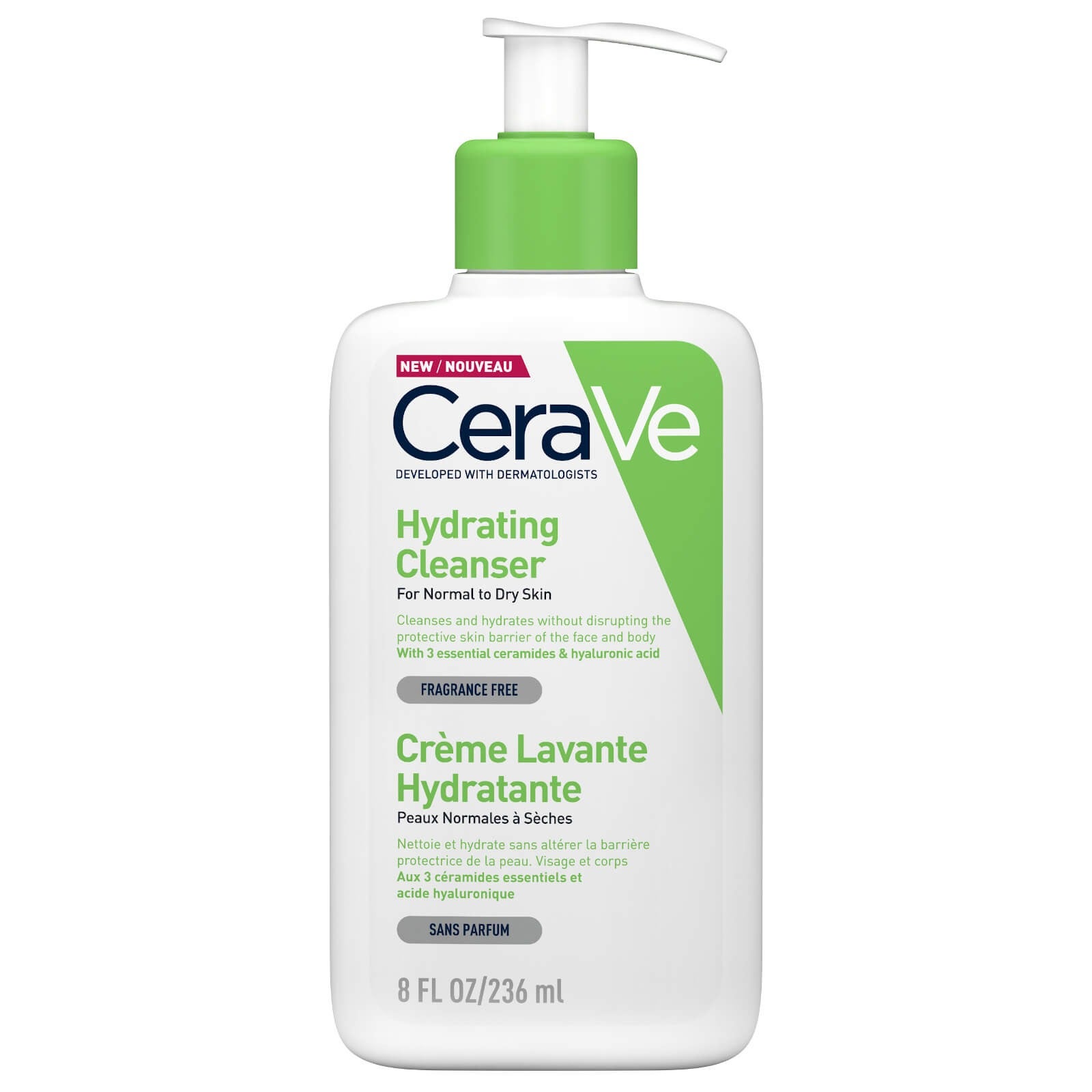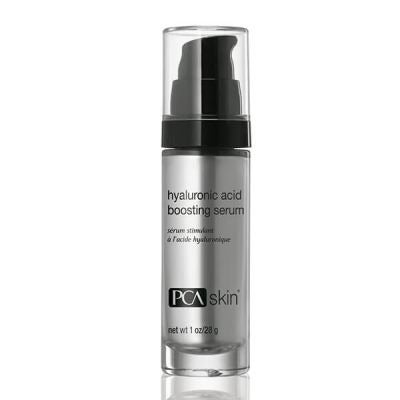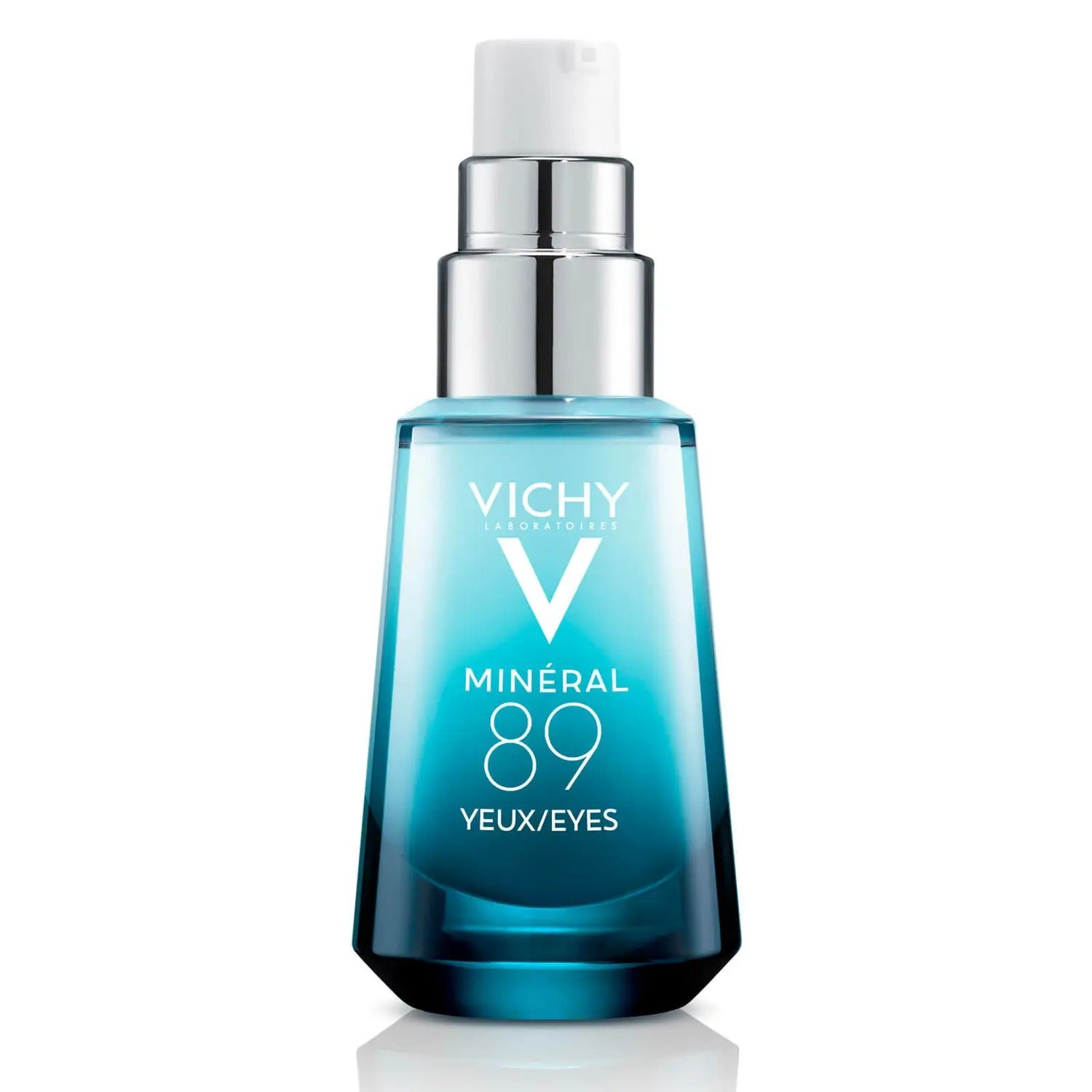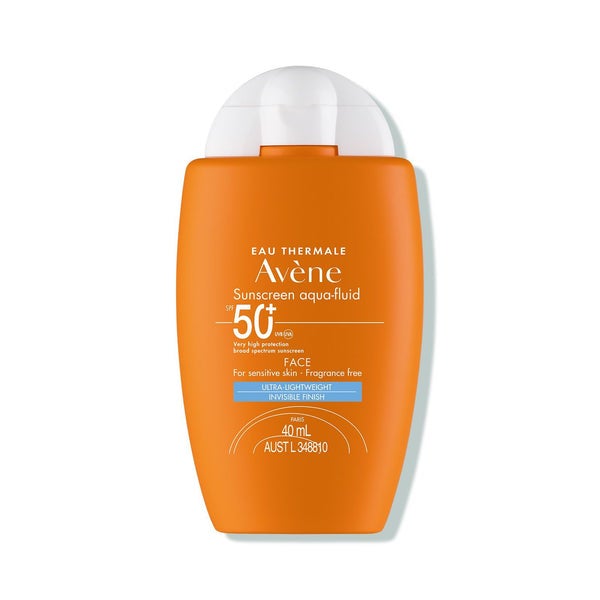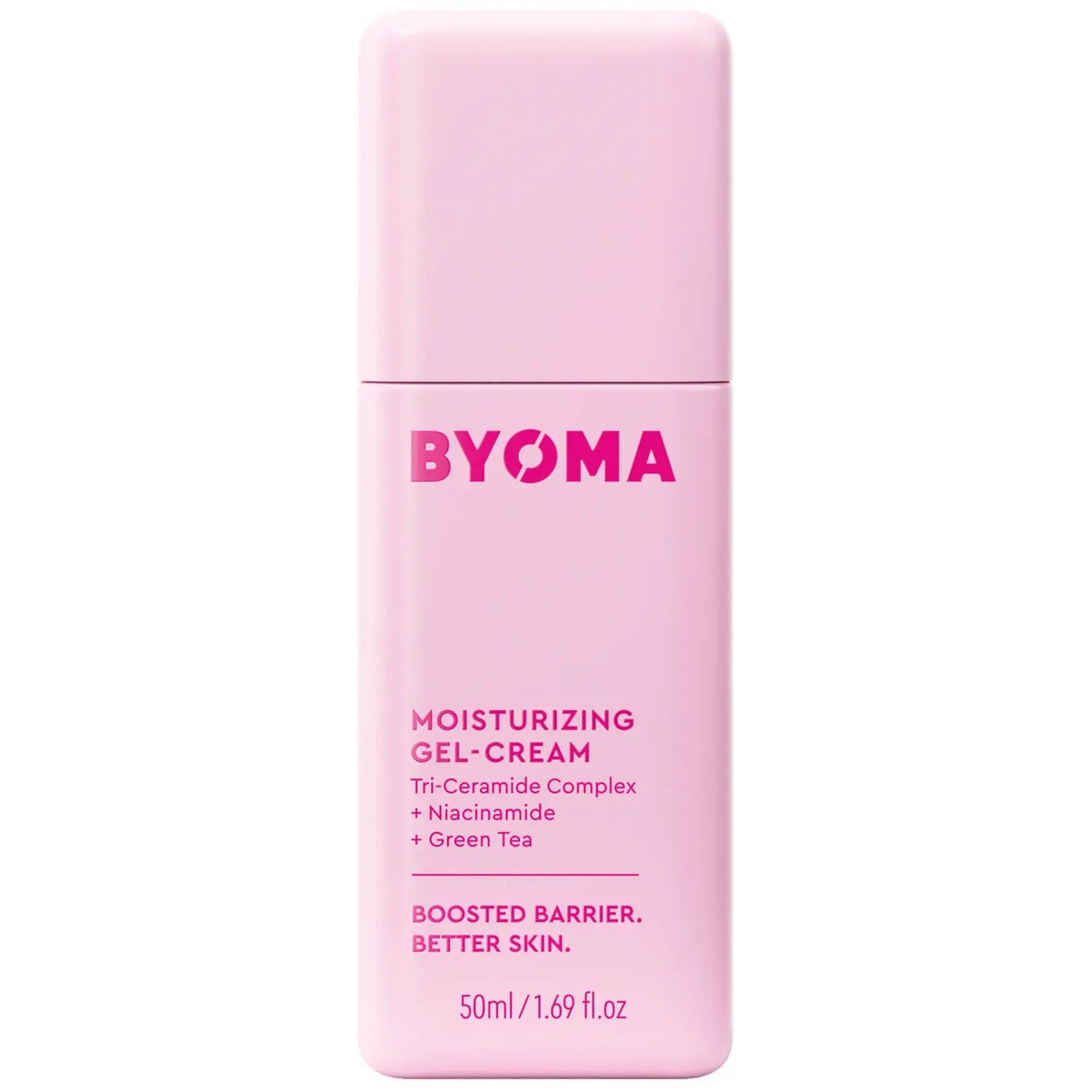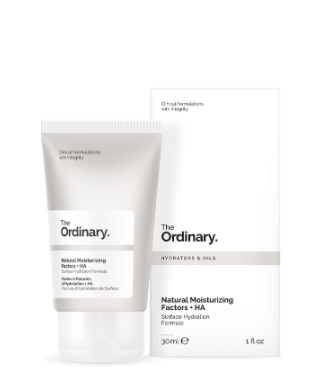At Refinery29 Australia, we’re here to help you navigate this overwhelming world of stuff. All of our picks are independently selected and curated by the editorial team, but we may earn commission or other compensation from the links on this page.
Dropping your hard-earned money on new skincare can be exciting. You might've pored over the reviews and star ratings, then scanned the label for dermatologist-loved additions like retinol and vitamin C — all necessary steps to finding your new, go-to product. For an increasing number of people however, there's an annoying issue when ripping off the protective packaging and delving in: the smell.
AdvertisementADVERTISEMENT
Whether you're a 10-step routine devotee or a cleanse-and-moisturise type of person, chances are at least one of your skincare products contains fragrance. For the majority, fragranced skincare is no issue at all and adds to the relaxing, sensory experience of applying products. But lately, skincare experts are noticing a trend. Miss Jonquille Chantrey, founder of Øne Aesthetic Studiø, reports that more patients are experiencing reactions to skincare products packed with perfume. Meanwhile medical doctor and director of Joyful Skin, Dr Kemi Fabusiwa, recently told R29: "In general, the more wonderful it smells, the worse it is for your skin."
Is fragrance in skincare really that bad?
Most commonly labelled 'parfum' on ingredients lists, Dr Parisha Acharya, aesthetic doctor at Waterhouse Young, explains: "Fragrance is an umbrella term for a cocktail of ingredients used by the cosmetics industry to scent products and they may be natural or synthetic." The confusion begins with the language used on packaging. "The cosmetic industry does not have to list every ingredient used in this cocktail and can rightfully just state perfume or fragrance," explains Dr Acharya. If you're not a cosmetic chemist, it can be difficult to work out exactly what these fragrances are, and many potentially bothersome culprits are often tucked away on labels.
"There are thousands of fragrance molecules and luckily only a small proportion can be irritating," adds Dr Emma Wedgeworth, consultant dermatologist and British Skin Foundation spokesperson. "But some of the most common fragrance allergens include cinnamal, isoeugenol, limonene and linalool," names you'd be forgiven for glossing over while reading product labels. Dr Acharya mentions that essential oils (concentrated oils extracted from plants) are also used to scent products (often by brands which market themselves as 'natural' or 'clean'). Being derived from natural sources doesn't make them any less irritating, particularly if you're prone to skin sensitivity.
AdvertisementADVERTISEMENT
The conversation around fragrance in skincare is nothing new but still hotly debated on social media. When Fenty Skin launched, fans with reactive skin took to Twitter in droves to share their opinions. One user tweeted: "I was so excited to try FENTY SKIN but fragrance in skincare is such a huge no no for me." Another wrote: "I want products that are the most beneficial for my skin [...] I was excited for the Fenty skincare line but the fragrance (albeit less than 1%) is still enough to cause bad reactions for someone with sensitive skin like me. I'll pass." Though the range is lauded for being cruelty-free and including effective ingredients like oil-reducing niacinamide, hydrating hyaluronic acid and moisturising glycerin, TikTokers can't seem to get over the addition of fragrance.
TikTok's skincare experts and beauty enthusiasts continue to wage war on fragranced products, citing sore skin and discolouration as potential issues. Most famously, skincare influencer Hyram Yarbro went viral for sharing his thoughts on fragrance, essential oils and certain alcohols in beauty products, with his takedown video amassing 2.2 million views to date. A quick whip round beauty editor friends proved that even seasoned product reviewers struggle to tolerate fragrance in skincare. A large proportion said that it aggravates their skin, with essential oils topping the list of repeat offenders.
AdvertisementADVERTISEMENT
@skincarebyhyram And that’s on good skin care 💅🏻 #skincare #skincarebyhyram ♬ stop using this to make fun of people - josh
How do you know if you're sensitive to fragrance?
If you're in the sensitive skin camp, Dr Wedgeworth explains that there are two ways in which fragrance may cause a reaction. Firstly, irritant contact dermatitis, which is caused by fragrance irritating the outer layer of skin. Dr Acharya says that this can disrupt your skin barrier and make skin sensitive. "If the skin's barrier is damaged, it will result in tiny cracks which allow moisture to leak away and foreign substances like irritants in. Signs of a damaged barrier include dryness, redness, itching, stinging and breakouts." Secondly, Dr Wedgeworth pinpoints allergic contact dermatitis. "This may occur due to the fragrance being recognised as a foreign molecule by the skin and activating an immune response." In both cases, adds Dr Wedgeworth, "skin can feel uncomfortable and become red and inflamed with patches of dryness, flaking and itching." She adds that fragrance allergy may present as a type of eczema, too. Though rare, severe cases can cause swelling and blistering.
So why is fragrance sensitivity on the rise? It pays to look at our skincare routines as a whole. Thanks to Instagram and TikTok, we're using more products than ever before. Recommended routines feature multiple steps and products including cleansers, toners, essences, serums, masks, moisturisers and oils. The expert consensus? No one needs to use that many products and skin is at risk of being overloaded. As a result, it may appear dry, irritated and red, and any fragrance in skincare (even trace amounts) may exacerbate this sensitivity.
AdvertisementADVERTISEMENT
Our obsession with the latest, buzzy ingredients could be an issue, too. When used incorrectly, too often or in large concentrations, things like retinol, exfoliating acids (for example glycolic and salicylic acid) and even vitamin C are known to cause skin irritation for a handful of people. If your skin barrier is already affected by overdoing it on these ingredients, plying it with products that contain fragrance may make that uncomfortable feeling worse. It isn't just TikTokers who are choosing not to purchase fragranced skincare. Dr Acharya confirms: "Fragranced skincare is definitely falling out of favour as consumers are looking for skin-friendly products that are unlikely to cause sensitivity." Dr Wedgeworth agrees: "I think people are shifting their focus more towards skin health, such as analysing the ingredients of products and asking how they can benefit their skin. Fragrance has no benefit to the skin. It's not necessary in skincare."
It's important to note that not everyone will experience sensitivity to fragrance — but should you give it a miss? "Those with sensitive or acne-prone skin types and chronic skin conditions such as eczema should try to avoid fragranced skincare, as it may further irritate their delicate skin," explains Dr Acharya. If you aren't sure whether you are sensitive to a product, she suggests doing a patch test. "Do this behind your ear or on your neck for a few days and see how your skin reacts," she advises. Dr Wedgeworth recommends shelving the offending product immediately if your skin reacts badly and suggests stripping back your skincare routine. "Just use very gentle cleansers and rich, hydrating moisturisers. If reactions keep occurring, see your doctor to arrange tests to try and work out the culprit." For more severe reactions, Dr Wedgeworth warns you may need to see your doctor or pharmacist to obtain an anti-inflammatory steroid cream.
AdvertisementADVERTISEMENT
Though the anti-fragrance movement shows no sign of slowing down, it really isn't all bad. There's a good reason why many skincare products contain fragrance. Dr Acharya explains that they often mask medicinal smells, which may otherwise be unpleasant when applied to skin. Dr Wedgeworth adds that scented skincare can improve the consumer experience.
But unless a skin expert has advised you to give scented products a hard pass, or you've had a reaction and experienced sore, dry skin in the past, you don't need to bin your fragranced skincare. If it's working for you, great. If you're not sure, beauty pros like Sarah Lee and Christine Chang advise making sure any fragrance is low on the ingredients list when shopping for new products. Viral TikTok skincare enthusiast @yayayayoung adds: "Fragrance in products does not make it bad. If you've had any allergies or sensitivities to fragrances or have had any adverse reactions in the past, then of course avoid products with fragrances. But for everyone else: do your research, make your own informed decision and try out the product before you label it as a 'no'."
What are the best fragrance-free skincare products?
If your skin is easily upset or you simply prefer to use fragrance-free skincare, here are some of Dr Acharya's favourite picks: CeraVe Hydrating Cleanser, $13.99, gently removes makeup, SPF and daily grime without stripping skin. It can be used in both the morning and the evening. PCA Skin's Hyaluronic Acid Boosting Serum, $220, and Vichy Minéral 89 Hyaluronic Acid Eye Serum, $42.95, also make Dr Acharya's fragrance-free favourites list, as does Avène Sunscreen Aqua-fluid SPF50+ For Sensitive Skin, $27.99, if you need a kind, daily SPF.
AdvertisementADVERTISEMENT
Finally, if you're in need of a simple, scentless moisturiser, R29 rates Byoma's Moisturising Gel Cream, $23.74, which is lightweight and quenching, and The Ordinary's Natural Moisturising Factors + HA, $17.10, which cocoons skin in moisture and works for pretty much all skin types.
shop 6 products
Want more? Get Refinery29 Australia’s best stories delivered to your inbox each week. Sign up here!
AdvertisementADVERTISEMENT







